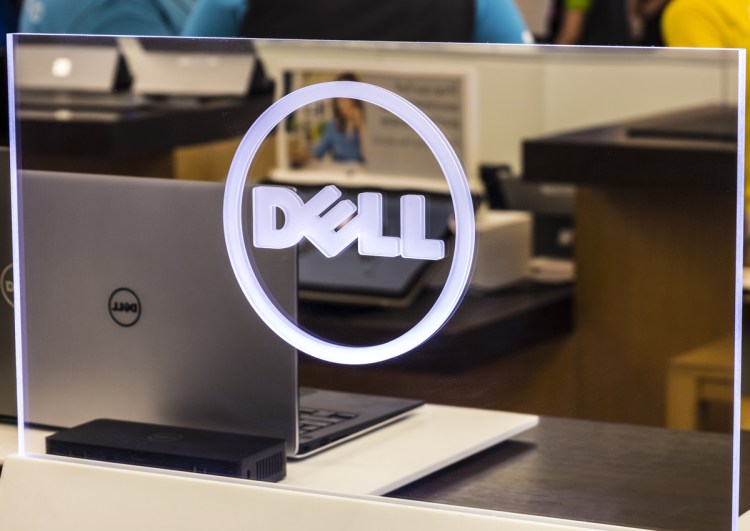As a former Dell executive, I’ve closely watched the rumors spilling out of the company about some kind of return to the public market. The latest story – that the infrastructure giant will allow itself to be bought by VMware, of which it owns about 80 percent – has sparked a predictable outcry. One of VMware’s largest shareholders called it a “terrible deal” and listed five other companies that would be better acquisition targets for the virtualization and cloud computing software provider than debt-ridden hardware maker Dell.
There’s a definite contrarian angle to what Dell seems poised to do. If you look across the data center and storage industry, all the big conglomerates have divested. Take the example of HP; they’ve tried to create value through greater focus by killing product lines or splitting into smaller, more specialized entities. But here we have a giant that wants to get even bigger. If Dell succeeds in closing this deal, it will call into question whether divestiture makes any sense. Moreover, if Dell thrives after such a deal, it will put on trial every strategic M&A move other infrastructure companies attempt to make to stay afloat in a space increasingly focused on moving to the cloud.
Why is Dell pushing forward on a reverse merger with VMware, despite the protests of shareholders who bought into a software company and are loathe to end up owning hardware?
One likely reason is that Dell wants to go public, one way or another, and a reverse merger brings less scrutiny than other options. That push to become publicly traded once again has a lot to do with Dell’s debt – about $52.7 billion at the end of its last fiscal year, according to The New York Times, largely due to Dell’s acquisition of EMC in 2016. But an initial public offering (IPO) comes with a whole lot of inspection that is somewhat alleviated by a reverse merger deal. Wrapping itself into VMware would allow Dell to contemplate an exit for some of its private equity investors with less mess than an IPO would create.
June 5th: The AI Audit in NYC
Join us next week in NYC to engage with top executive leaders, delving into strategies for auditing AI models to ensure fairness, optimal performance, and ethical compliance across diverse organizations. Secure your attendance for this exclusive invite-only event.
Most likely, this deal needs to happen for a simple reason: profits. It’s important to consider just how profitable VMware is in comparison to the rest of the entity. Last quarter, VMware produced $834 million in operating income on $2.3 billion in revenue. This was more than either the infrastructure business or the client solutions business by a long shot. Moreover, those other businesses generate lesser profits on much bigger revenues – $8.8 billion and $10.6 billion, respectively. It’s easy to see that, without VMware’s operating income, a public Dell might not be a very exciting story.
However, solving its problems by making VMware become its acquirer will likely spark other problems for Dell. Given the sheer mass of debt that has been accumulated, the attractiveness of the company to the public markets is determined by cash flows from VMware. On the other hand, the existing VMware shareholders have little interest in helping pay those off. It’s not hard to see how this deal could end up resulting in legal action, especially when you read what shareholders have to say.
The portfolio manager of the T. Rowe Institutional Large-Cap Growth fund recently told Barron’s that his firm is against the deal. The publication reports that T. Rowe Price’s Taymour Tamaddon said, “We’re growth investors and VMware is a growth company. Dell is not a growth company.”
And VMware shareholder Jericho Capital, which owns 1.8 percent of the company’s outstanding Class A common stock, sent a letter to the independent directors of VMware that it also distributed via a press release. Jericho writes:
“There is no doubt in our mind that a reverse merger of Dell into VMW would be a terrible deal for VMW shareholders. Even the most casual observer can see that VMW gains nothing by saddling the Company’s faster growth, net cash, highly strategic software business with the dead weight of Dell’s slower growth, heavily debt-laden, legacy hardware-dependent entity. Any such transaction would significantly damage VMW. But assuming the Company is of the view that a strategic acquisition is necessary, we believe there are any number of other compelling opportunities for VMW to pursue that are far more accretive and value-enhancing for all shareholders, as opposed to a transaction that would burden the Company with a massive debt load and benefit solely its majority shareholder.”
The letter comes with four emphatic subheads, ranging from, “Potential Reverse Merger with Dell Will Lead to Significant Shareholder Value Destruction” to “VMware would be Hampered by Dead Weight of Slower Growth, Debt-Laden Dell.”
It was fatally flawed to assume VMware shareholders would be OK with owning Dell/EMC when they bought into a growing software company. Michael Dell loves his hardware, and he will have to make a stark change from his company’s historic priorities to merge with VMware. More challenging, however, will be the moves Dell will have to make to appease angry and vocal shareholders. I’m betting, though, that Dell will find a way to keep its adversaries happy. It must. Including VMware in its public outing is the only way “debt-laden Dell” can keep its valuation.
Laz Vekiarides is the cofounder and CTO at ClearSky Data. For over 20 years, he has served in key technical and leadership roles to bring new technologies to market. Most recently, he served as the Executive Director of Software Engineering for Dell’s EqualLogic Storage Engineering group.


